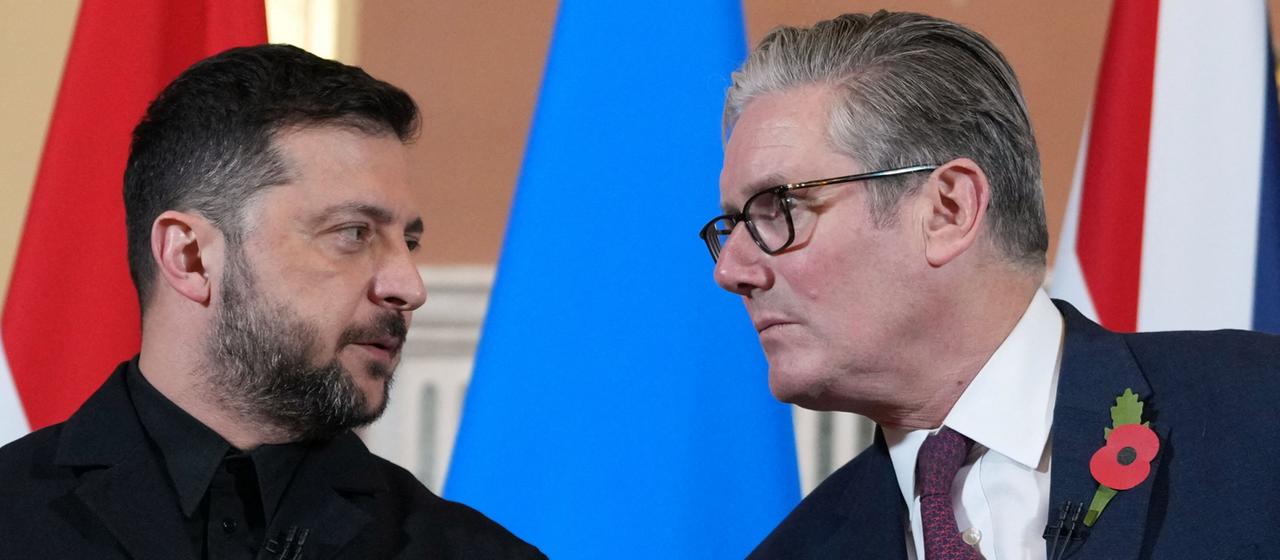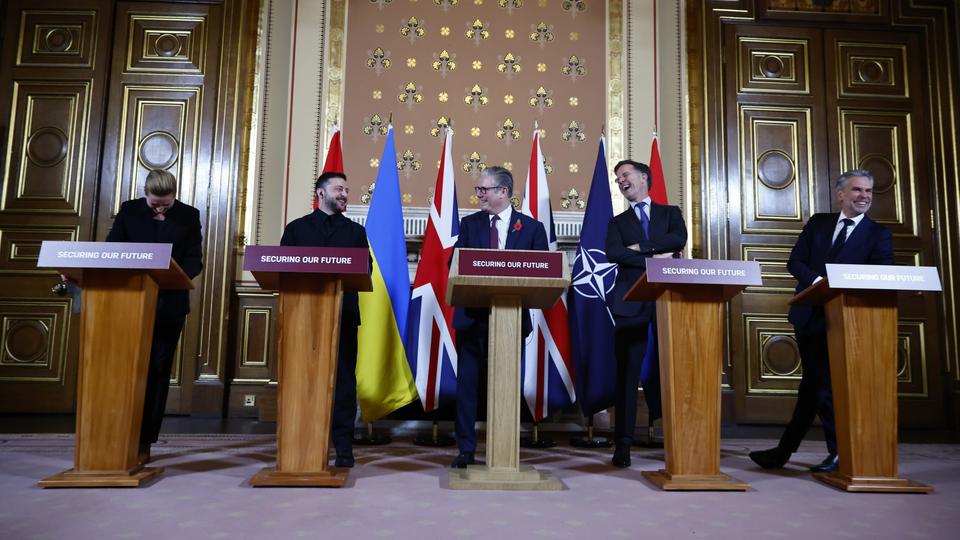
Russian assets for Ukraine? Britain is increasing pressure on the EU in the stalled debate – and sees a "step forward." Prime Minister Starmer hopes for a quick solution.
More long-range weapons and the use of Russian assets for Ukraine's defense: British Prime Minister Keir Starmer wants to put the Russian-attacked country in the strongest possible position before winter. At the meeting of the so-called Coalition of the Willing in London, he attempted to boost the sluggish efforts to support Kyiv.
Previously, the EU member states had failed to agree on the use of the frozen Russian assets at their summit in Brussels. However, a decision on this is expected shortly before Christmas, as announced by EU Council President António Costa. Due to legal concerns raised by the central player, Belgium, where the assets are frozen, it remains questionable whether the plan can be implemented.
"We have to agree"
In today's debate, Starmer increased the pressure on European leaders."We must agree to bring an end to the Russian state assets and release billions to fund Ukraine's defense," he said. Britain is ready to work with the EU to move this forward as quickly as possible.
The EU states have"taken a very important step forward" in this regard, Starmer also praised at a joint press conference with Ukrainian President Volodymyr Zelensky, NATO Secretary General Mark Rutte, Danish Prime Minister Mette Frederiksen, and Dutch Prime Minister Dick Schoof. This progress must now"bear fruit within a short timeframe," he said.

Starmer wants to bring Putin to the negotiating table
At the meeting, a clear plan was agreed to help Ukraine through what is expected to be a difficult winter, Starmer explained. This includes, among other things, banning Russian oil and gas from global markets, providing more long-range weapons, and paving the way for the use of Russian assets to defend Ukraine.
Together with the US, they must increase pressure on Russian President Vladimir Putin"more than ever," the British Prime Minister said after the meeting at the British Foreign Office. This is the only way to change Putin's mind and bring him back to the negotiating table. The US recently imposed new sanctions on Russian oil companies for the first time under US President Donald Trump's administration. Furthermore, a planned meeting between Trump and Putin in Budapest was scrapped.
The so-called Coalition of the Willing is a group of several states led by France and Great Britain that want to provide Ukraine with military security guarantees for the period following a potential ceasefire with Russia. Around 20 other heads of state and government participated virtually, and Chancellor Friedrich Merz was represented by Foreign Minister Johann Wadephul after the EU summit.
Ukraine with enormous financial needs
It was primarily Merz and EU Commission President Ursula von der Leyen who promoted the plans in Brussels to use Russian central bank funds locked up in the EU to provide Ukraine with loans of up to 140 billion euros. Russia would only get the money back if it paid reparations after the war of aggression ended. In the event that the frozen Russian funds unexpectedly needed to be released, EU member states would provide guarantees.
The main reason for this is Ukraine's enormous financial needs. The International Monetary Fund (IMF) estimates the need for budgetary support for the functioning of the state in 2026 and 2027 at 60 billion US dollars (52 billion euros). In addition, at least 80 billion euros would likely be needed for weapons and ammunition for the defensive struggle against Russia – and this already takes into account the fact that the war may not last another full two years in its current form.
Zelensky calls for further sanctions
Following the imposition of US and British sanctions against Russian oil giants Rosneft and Lukoil, the Ukrainian president urged an expansion of the sanctions."We must put pressure on all Russian oil companies, such as Surgutneftegaz and others," Zelenskyy said. Punitive measures should also affect Russia's oil terminals and the tankers of the Russian shadow fleet, which is used to circumvent international oil sanctions. Ukraine, for its part, is already increasing pressure through its drone and missile attacks on the Russian energy sector.
At the same time, Zelensky renewed his request to allies for the supply of long-range weapons."Long-range capabilities (of Ukraine) strengthen diplomacy," he said. The more losses Russia suffers on its own territory, the more willing Kremlin chief Vladimir Putin is to engage in"meaningful diplomacy." The Ukrainian had already called for similar things at the EU summit."These long-range weapons are not only available in the US – some European countries also have them, including Tomahawks."
NATO Secretary General Mark Rutte said at the press conference that the issue of the Tomahawk cruise missiles would continue to be reviewed by US President Donald Trump. The decision rests with the US. According to the manufacturer, the Tomahawks have a range of approximately 1,600 kilometers. This would allow Ukraine to attack targets in large parts of Russia. Among European countries, Great Britain has Tomahawks.

